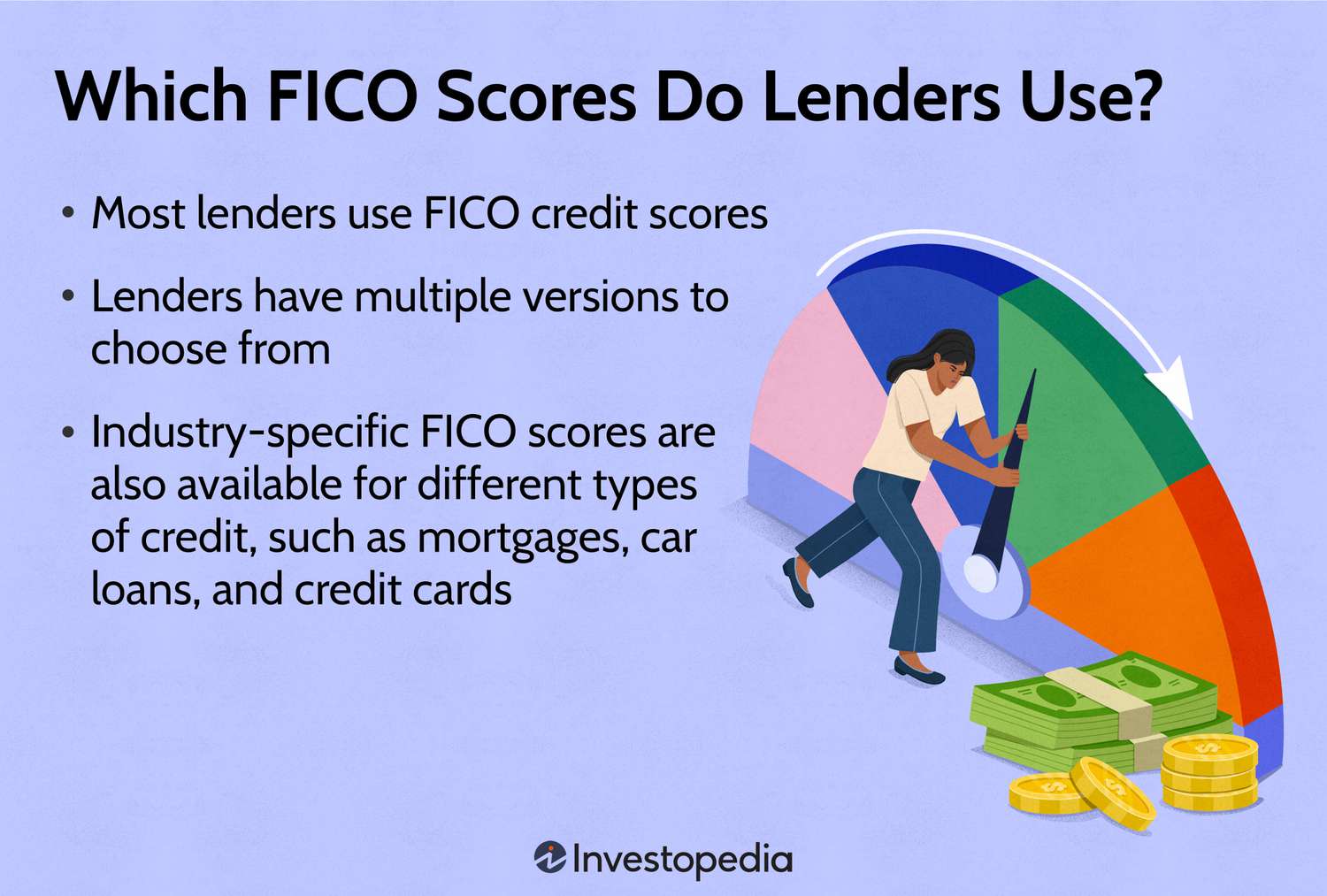When applying for loans, whether it’s a mortgage, auto loan, or credit card, lenders heavily rely on your credit score to assess your creditworthiness. But if you’ve checked your credit score recently, you might notice there’s more than one. This can raise the question: “What FICO score do lenders use?”
Understanding this can help you prepare before submitting any loan application. Below, we’ll explore the different types of FICO scores, their usage, and what you need to know to put your best foot forward.
Why Are FICO Scores Important to Lenders?
FICO scores, developed by the Fair Isaac Corporation, are the most widely used credit scoring models in the United States. They give lenders a snapshot of your financial reliability, helping them determine:
- Whether to approve your loan application
- How much credit to extend to you
- What interest rate to offer you
Different FICO versions consider various aspects of your financial habits, from payment history to credit utilization. However, lenders don’t all use the same version. Depending on the type of loan, they might favor a specific FICO model tailored to their needs.
The Most Common FICO Scores Used by Lenders
1. FICO Score 5
- Where it’s used: Mortgage lending and auto loans
- What makes it unique: The FICO 5 model is older but trusted, especially by mortgage lenders. Its emphasis on payment history and detailed account data allows lenders to assess risk accurately for large loans like mortgages.
- Data source: FICO 5 relies exclusively on credit data from Equifax.
Mortgage lenders, in particular, appreciate the conservative nature of FICO 5, which takes unpaid collections and medical debt more seriously than other FICO scores. When applying for a mortgage, lenders generally request your FICO 5 score or similar versions like FICO 2 (Experian) or FICO 4 (TransUnion).
2. FICO Score 8
- Where it’s used: Credit card applications and general loans
- What makes it unique: Introduced in 2009, FICO 8 is one of the most commonly used versions in everyday lending. It’s known for being more lenient with one-off late payments while focusing on how well you manage credit card balances.
- Data source: FICO 8 uses combined data from all three major credit bureaus (Equifax, Experian, and TransUnion).
Lenders prefer FICO 8 for credit cards and personal loans because it better predicts how quickly someone might repay smaller loans or handle revolving credit.
3. FICO Score 9 and Newer Models
- Where it’s used: Limited adoption by lenders so far
- What makes it unique: Later FICO models (FICO 9, 10, and beyond) introduce new features, such as ignoring paid collection accounts and including rental payment data.
While newer versions like FICO 10T analyze trended data (e.g., changes in credit behavior over time), lenders have been slow to adopt them. This is primarily due to the costs and risks involved with updating established systems.
Which FICO Score is Best for a Mortgage?
The mortgage industry relies heavily on older FICO models, especially FICO Score 5. When lenders evaluate a mortgage application, they typically request scores from all three major credit bureaus (Equifax, Experian, and TransUnion). This results in a Residential Mortgage Credit Report (RMCR), and lenders often use the middle score of the three to make their decision.
For example:
- Equifax might provide your FICO Score 5.
- Experian might deliver your FICO Score 2.
- TransUnion might contribute your FICO Score 4.
The middle score becomes the benchmark for approval, ensuring lenders get a balanced snapshot of your creditworthiness.
How Do Different FICO Scores Impact Borrowers?
Since lenders choose a specific FICO score based on the type of loan, seeing a different score than expected can catch borrowers off guard. For instance:
- You might see a FICO 8 score of 740 but have a FICO 5 score of 710—for the same credit profile.
- This difference arises because each model weighs factors like unpaid debts, credit utilization, and late payments differently.
Understanding which FICO score your lender uses eliminates surprises and ensures you can work on improving the right factors before applying.
Tips to Improve Your FICO Score Before Applying for a Loan
No matter which FICO version your lender uses, there are universal habits that can boost your overall credit profile:
- Pay Bills on Time: Your payment history has the highest weight (35%) in determining your FICO score. Set reminders to avoid missed payments.
- Lower Credit Card Balances: A low credit utilization ratio (the percentage of available credit you use) can significantly boost your score. Aim to use less than 30% of your available credit.
- Avoid Applying for Too Much New Credit: Multiple recent applications can signal financial distress and lower your score. Plan your applications carefully.
- Review Your Credit Reports: Errors on your report can drag your score down. Check annually via AnnualCreditReport.com and dispute inaccuracies.
- Diversify Your Credit Mix: A good combination of revolving credit (credit cards) and installment loans (e.g., auto loans) can positively influence your score.
Knowing which FICO score is used by your prospective lender will also guide you in applying for the type of credit where your score is strongest.
The Bottom Line on Lenders and FICO Scores
What FICO score do lenders use? The answer depends largely on the type of loan:
- For mortgages, older models like FICO Score 5 lead the way for their detailed and cautious approach.
- For credit card applications, FICO 8 dominates with its balance-sensitive scoring.
Understanding the specifics of these models arms you with the knowledge to take control of your credit and increase your chances of approval. Before your next application, take a moment to check your FICO score version and polish your credit habits.
For more insights into managing your credit, check with your lender for their preferred FICO model or access your own FICO score online through trusted platforms. With the right preparation, you’ll be well on your way to securing the credit you need under the best terms possible!








